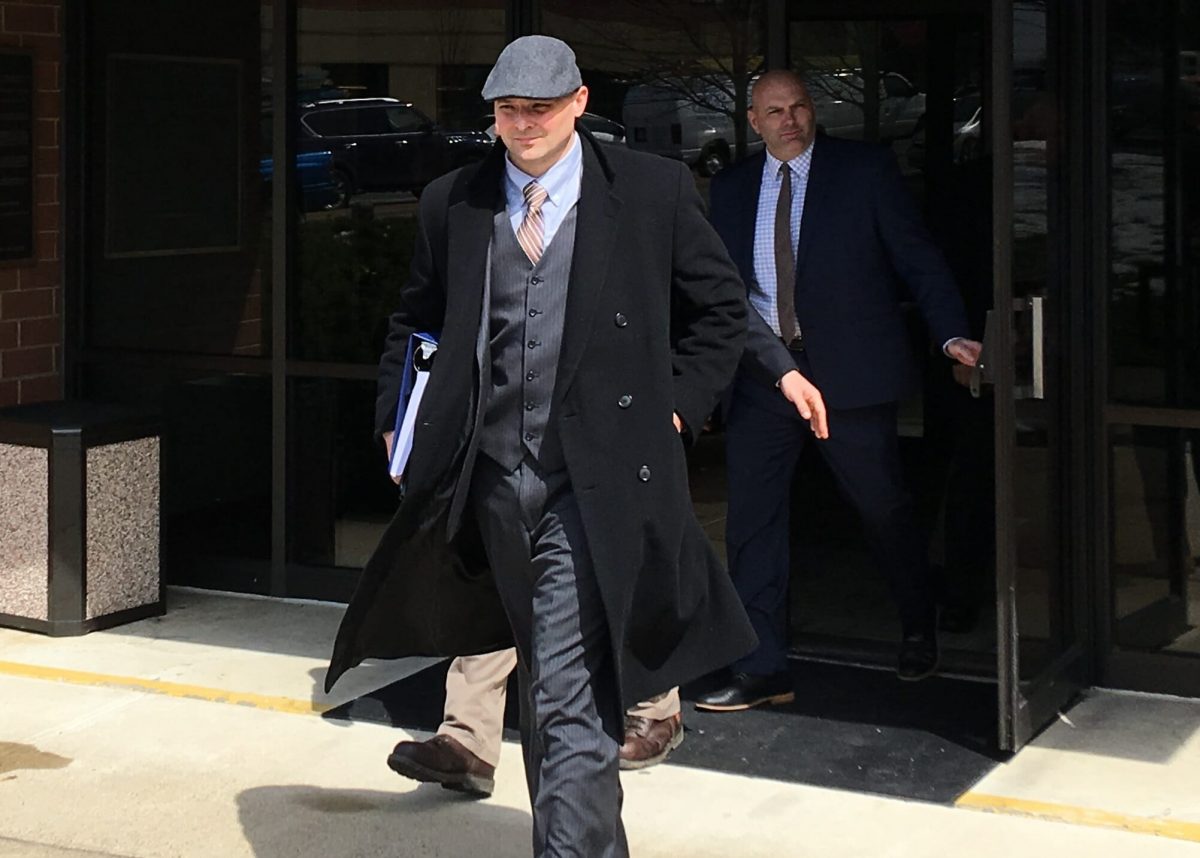More than seven years after eight African Americans filed a lawsuit accusing an Albemarle police officer of racial profiling, the county has settled the complaint.
“Not with a bang, but with a whimper,” says plaintiffs’ attorney Jeff Fogel, who had prepared to go to trial several times over the course of the case. “It was an exhausting experience to spend seven years litigating a case.”
The lawsuit against then-officer Andrew Holmes, now an Albemarle County Police Department detective, was filed in February 2016.
On the second day of a jury trial in federal court in March 2018, Judge Norman Moon dismissed the case. Fogel appealed and the U.S. Court of Appeals for the Fourth Circuit remanded the case back to Moon in August 2019.
Plaintiffs Bianca Johnson and Delmar Canada said Holmes showed up at their residence at 11pm on a Friday with a search warrant for a DMV license suspension notice, which Canada said he’d never received. A warrant to search for a piece of paper was an unprecedented tactic, a fellow officer testified, and Holmes tried it in hopes of finding drugs during a time when he wanted to join the Jefferson Area Drug Enforcement Task Force, according to his lawyer during a 2017 hearing. No drugs were found.
“It seems a jury could say Officer Holmes saw an African American driving a very expensive, nice automobile and assumed he was dealing drugs,” noted Judge Glen Conrad at that same hearing.
Holmes stopped plaintiffs Rodney Hubbard and his mother, Savannah, on U.S. 29 in 2015 and claimed he smelled marijuana, a common probable cause pretext used by cops until it was outlawed by the Virginia General Assembly in 2021. He held the Hubbards for two hours while he searched their car—and Rodney’s groin.
Leon Polk and Malcolm Cook, a former UVA football player, alleged that Holmes pulled them over in the old Kmart parking lot, claimed he smelled pot, ordered them out of the car at gunpoint, and held them for nearly three hours while he searched the car—and found no drugs. Cory Grady and Sergio Harris were similarly stopped and searched by Holmes.
County police records show that 51 percent of the summons Holmes wrote in 2015 were to African Americans, although the population in the sectors he worked was 68 percent white and 18 percent Black. That same year, 22 percent of the tickets Albemarle cops wrote were to Blacks and 78 percent to whites.
“It was striking what a higher rate of stopping Blacks Holmes had over anyone else,” says Fogel.
The case was set to go to trial in September 2022 when Albemarle’s attorney, Jim Guynn, sought mediation. Fogel thought he had a settlement until Rodney Hubbard, who’d earlier said he wanted $45 million, refused to sign off on the county’s offer. Fogel moved to be removed as Hubbard’s attorney, and Hubbard found a new lawyer.
Meanwhile, Guynn filed a motion to enforce the settlement, having made clear that the county would only enter into a “global settlement” to which all the plaintiffs agreed. In January, Judge Moon agreed to rule on the motion, which he granted seven months later on August 29.
The size of the settlement is confidential, but according to court documents and testimony, Albemarle offered $35,000 to each plaintiff. Plaintiff Cook, now a police officer in Alexandria, testified that Hubbard and Harris said that $50,000 was as low as they’d go, and they didn’t want to pay attorney’s fees.
Fogel said he couldn’t confirm the amount of the settlement, but that Hubbard did receive more than his co-plaintiffs. And he acknowledged the irony of the undisclosed amounts because he’s now suing Charlottesville police over secret settlements on claims of police misconduct.
“The settlement should have been four times what we got,” says Hubbard, and he believes Holmes should have been fired. The lengthy legal proceeding was worth it, he says, because of the awareness it brought to racial profiling.
Hubbard, who lives in Lynchburg, says, “I think the case made an impact on Albemarle police and how they police Black people.” He says he hasn’t been pulled over on U.S. 29 since.
But it took a toll on him as well. “It was very stressful, with a lot of sleepless nights,” he says. And he still feels anxious when a squad car pulls in behind him.
Holmes, who was named Albemarle detective of the year in 2021, did not respond to phone calls from C-VILLE, and police spokesperson Abbey Stumpf said he was not available to speak at this time.
Fogel isn’t sure that the lawsuit made any impact on racial profiling.
Holmes received 11 complaints in 2014 and seven in 2015—after three, supervisors were supposed to use “early intervention,” says Fogel. Holmes testified that he’d never been counseled by superiors. “It’s disturbing because if the county knew about it, they should have done something,” Fogel says.
He notes that in the most recent report from the Virginia Department of Criminal Justice Services, Albemarle County remains high in the number of minorities stopped and searched. “Obviously it’s still a problem there,” observes Fogel.
C-VILLE reached out to Albemarle Chief Sean Reeves, who also was unavailable to speak at this time, according to Stumpf.
